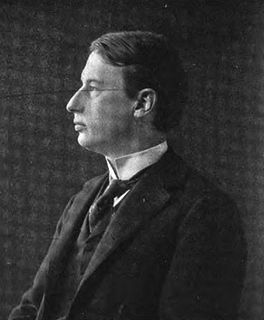A Quote by John Locke
Moral laws are set as a curb and restraint to these exorbitant desires, which they cannot be but by rewards and punishments, that will over-balance the satisfaction any one shall propose to himself in the breach of the law.
Related Quotes
The good of the governed is the end, and rewards and punishments are the means, of all government. The government of the supreme and all-perfect Mind, over all his intellectual creation, is by proportioning rewards to piety and virtue, and punishments to disobedience and vice. ... The joys of heaven are prepared, and the horrors of hell in a future state, to render the moral government of the universe perfect and complete. Human government is more or less perfect, as it approaches nearer or diverges further from an imitation of this perfect plan of divine and moral government.
Though we have clear and full scriptures in the New Testament for abolishing the Ceremonial law, yet we nowhere read in all the new Testament of the abolishing of the Judicial law, so far as it did concern the punishing of sins against the Moral law, of which Heresy and seducing of souls is one, and a great one. Once God did reveal his will for punishing those sins by such and such punishments. He who will hold that the Christian Magistrate is not bound to inflict such punishments for such sins, is bound to prove that those former laws of God are abolished, and to shew some scripture for it.
A thoroughly socialized person is one who desires only the rewards that others around him have agreed he should long for - rewards often grafted onto genetically programmed desires.A person who cannot override genetic instructions when necessary is always vulnerable..The solution is to gradually become free of societal rewards and learn how to substitute for them rewards that are under one's own powers.
All laws which can be violated without doing any one any injury are laughed at. Nay, so far are they from doing anything to control the desires and passions of men? that, on the contrary, they direct and incite men's thoughts the more toward those very objects, for we always strive toward what is forbidden and desire the things we are not allowed to have. And men of leisure are never deficient in the ingenuity needed to enable them to outwit laws framed to regulate things which cannot be entirely forbidden... He who tries to determine everything by law will foment crime rather than lessen it.
The moral issues with which Marcus struggles would be, as he points out, unchanged whether the universe were mechanical and devoid of meaning or value or ruled by deity or Providence; whether the will were in fact free or determined; whether there were or were not a future life, or any even fugitive rewards and punishments at all.
There are three points of doctrine the belief of which forms the foundation of all morality. The first is the existence of God; the second is the immortality of the human soul; and the third is a future state of rewards and punishments. Suppose it possible for a man to disbelieve either of these three articles of faith and that man will have no conscience, he will have no other law than that of the tiger or the shark. The laws of man may bind him in chains or may put him to death, but they never can make him wise, virtuous, or happy.
The sovereignty of the States is the language of the Confederacy and not the language of the Constitution. The latter contains the emphatic words. This Constitution and the laws of the United States which shall be made in pursuance thereof and all treaties made or which shall be made under the authority of the United States, shall be the supreme law of the land and the judges in every State shall be bound thereby, anything in the constitution or laws of any State to the contrary notwithstanding
No society can exist if respect for the law does not to some extent prevail; but the surest way to have the laws respected is to make them respectable. When law and morality are in contradiction, the citizen finds himself in the cruel dilemma of either losing his moral sense or of losing respect for the law, two evils of which one is as great as the other, and between which it is difficult to choose.
As I have already urged, the practice of that which is ethically best - what we call goodness or virtue - involves a course of conduct which, in all respects, is opposed to that which leads to success in the cosmic struggle for existence. In place of ruthless selfassertion it demands self-restraint; in place of thrusting aside, or treading down, all competitors, it requires that the individual shall not merely respect , but shall help his fellows. It repudiates the gladiatorial theory of existence. Laws and moral precepts are directed to the end of curbing the cosmic process.
We are born knowing nothing and with much striving we learn but a little; yet all the while we are bound by laws that hearken to no plea of ignorance, and measure out their rewards and punishments with calm indifference. In such a state, humility is the virtue of men, and their only defense; to walk humbly with God, never doubting, whatever befall, that His will is good, and that His law is right.







































